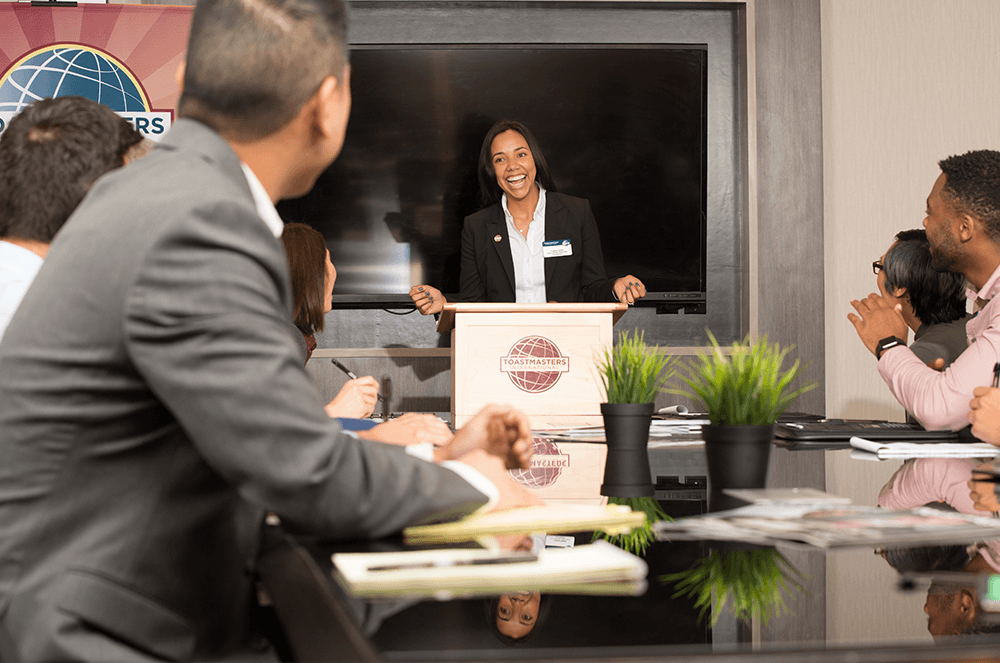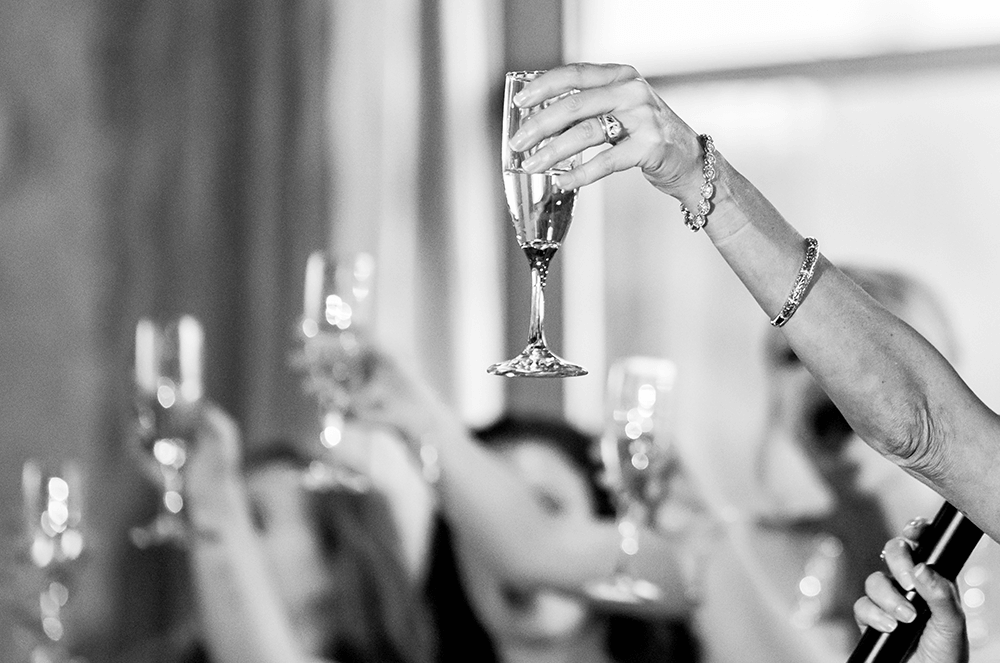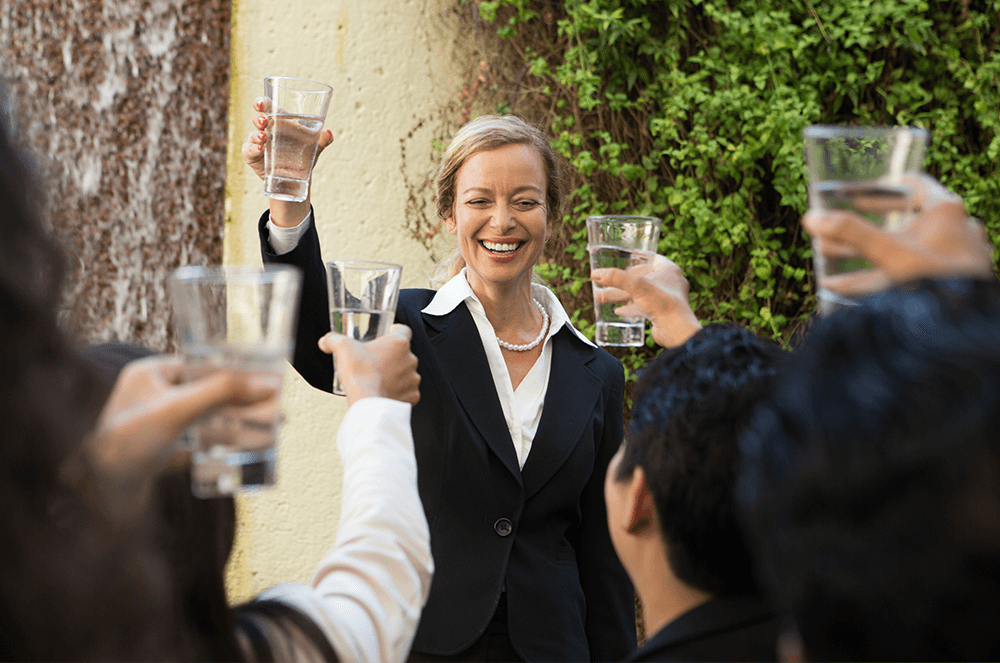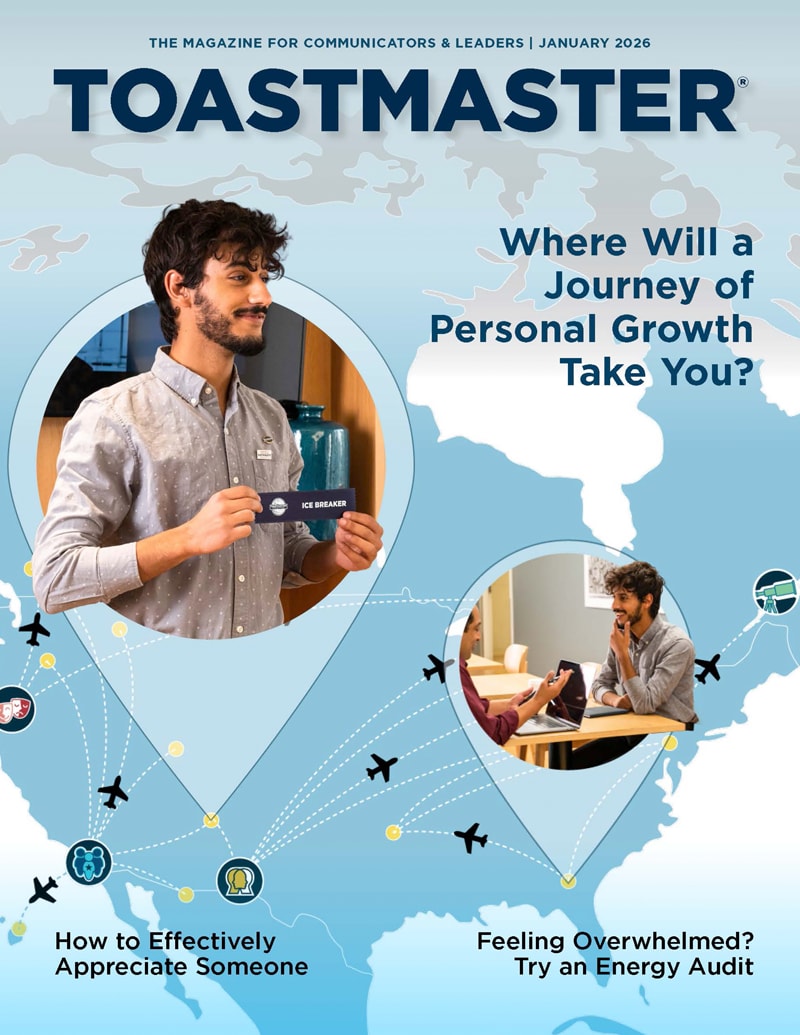
It’s one of Sherri Raftery’s favorite memories in Toastmasters: the meeting when her fellow club members spent the evening making fun of her. She even considered it an honor to be the target of one joke after another, because this was part of a time-honored and beloved speaking tradition: the roast, in which praise is delivered as a series of humorous insults.
“Being roasted is an honor for the person being roasted,” says Raftery, a Distinguished Toastmaster and member of three clubs, including Island Foghorns Toastmasters Club in Middletown, Rhode Island. “It means folks took the time to think about what you did well and find funny ways to talk about them.”
The roast is a unique kind of tribute made popular by the legendary comedians of the Friars Club (a private club based in New York City), whose famously filthy style got cleaned up for American TV and inspired imitators like the Dean Martin Celebrity Roasts of the 1970s and today’s Comedy Central series. What sets it apart from other homages is not just its use of humor, but also that the jokes are used to first knock down the guest of honor and then raise them back up on their pedestal.
The humor is far gentler and decidedly G-rated at roasts of the many Toastmasters clubs and Districts that use them as special end-of-term tributes to outgoing officers or to recognize a member’s birthday or major accomplishment. But it still shares the basic grilling recipe: brief stories and one-liners about the guest of honor, served with exaggeration and absurd twists.
The roast was a specialty speech in the legacy education program of Toastmasters and may be used for one of several projects in the Engaging Humor modules of the Pathways learning experience. It’s a major event for St. Petersburg Toastmasters Club in St. Petersburg, Florida, which roasts its outgoing President at an annual summer banquet.
“People start taking notes (for the roast) right away, as soon as the new President comes on board,” says club member Jeannette Sweeney, DTM. “People say we gotta start writing things down that we notice about these people, to use at the roast. It’s part of our culture. It’s part of our program.”
Sweeney’s club has roasted one President on her love of karaoke and loyalty to Duke’s Mayonnaise (remember that time when she spilled the Duke’s all over the floor?). “We would roast on little quirks about certain speeches they did, or how they might open up the meeting if they always had a certain saying or something like that,” Sweeney says.
In this Toastmasters Podcast episode, Toastmaster Chris Arning provides grilling tips for a great roast.
Punching Up
A roast may be best defined by what it’s not: an opportunity to criticize or complain about the guest of honor or get revenge for past slights. Neither should it focus on areas of weakness, like personal appearance or ethnicity. “This is an opportunity for camaraderie,” says Raftery. “Remember the Toastmasters core values of respect and integrity.”
Even if the subject is known for making fun of their appearance, it’s best to avoid that topic. Making jokes about yourself is funny; making them about someone else is cruel—even if they’re laughing. The jokes can still have an edge as long as they’re not mean-spirited, says Chris Arning, Past President of Berkeley Square Speakers Toastmasters Club in central London.
To ensure you don’t cross the line between ribbing and ridicule, experienced roastmasters recommend having someone who knows the roastee look over your material.
“You take a positive quality and exaggerate it, but still in a positive way,” he says. “It also illustrates a point often made, which is that humor, even if it’s jokes, usually has a grain of truth to it. So, you play on things that are true about the person but present them in a humorous way and often with some exaggeration or a little bit of an edge.”
That’s why it’s usually best for members to roast an officer rather than the other way around—it’s the timeworn comedy rule about “punching up” rather than down.
Arning laughed with everyone else when he got roasted by his club, even at the jokes he didn’t particularly like. As a leader, he says, it was important for him to show that he could take the joke. That’s the serious part of the fun.
“A roast is a rite of passage to show what broad shoulders you have,” he explains. “Good leaders should be open to feedback, and in a way, a roast is like a concentrated dose of feedback. It says this person is resilient, they’re able to have truths told about them and they can take it. For me, that’s why it’s such an important part of Toastmasters. All the best leaders I’ve seen have taken their roast and they’ve become better leaders for it.”
The Well-Done Roast
To ensure you don’t cross the line between ribbing and ridicule, experienced roastmasters recommend having someone who knows the roastee look over your material. (Keep it a surprise for the roastee.) It helps if you know the roastee, and it will mean more to them. But if you don’t know them, Raftery says, start with background information: Interview the recipient and those close to them. Get a few facts about their life and their Toastmasters career.
Arning thinks you should not only know the roast subject, but he says you also “need to have sweated with that person. You need to have had some history with that person. Otherwise, you haven’t got the right to roast them. Fundamentally, roasting is not just a technical exercise. Plus, I think it’s funnier if the whole audience knows you actually get along with the person but you’re saying something slightly disparaging.”
Sweeney’s research has included watching Comedy Central roasts—not for their jokes, which tend to be raunchy even for basic cable TV, but the process. She points out that the show’s professional comics always end on a positive note no matter how insulting they’ve been. She recommends doing that, and then thanking the subject for their contributions and sincerely complimenting them.
Like Raftery and other experienced roasters, Arning believes it’s an honor to be roasted. “To dispel the lazy stereotypes,” he says, “a roast isn’t about cheap shots. It is a noble speech that says this person needs celebrating and doing it in a public forum. The premise is you know the person is a good enough sport to take the joke and you show that you care enough about them to bother to write it.”
Kate McClare, DTM , is a professional writer and editor who joined Toastmasters in 2011. She is a member of Miami Advanced Toastmasters Club in Kendall, Florida, and an Area Director for District 47, Southeast Florida and The Bahamas.
Related Articles

Communication
It’s Your Turn to Toast

Humor
The Magic Power of Humor

Communication



 Previous
Previous

 Grilling Tips
Grilling Tips
 Previous Article
Previous Article